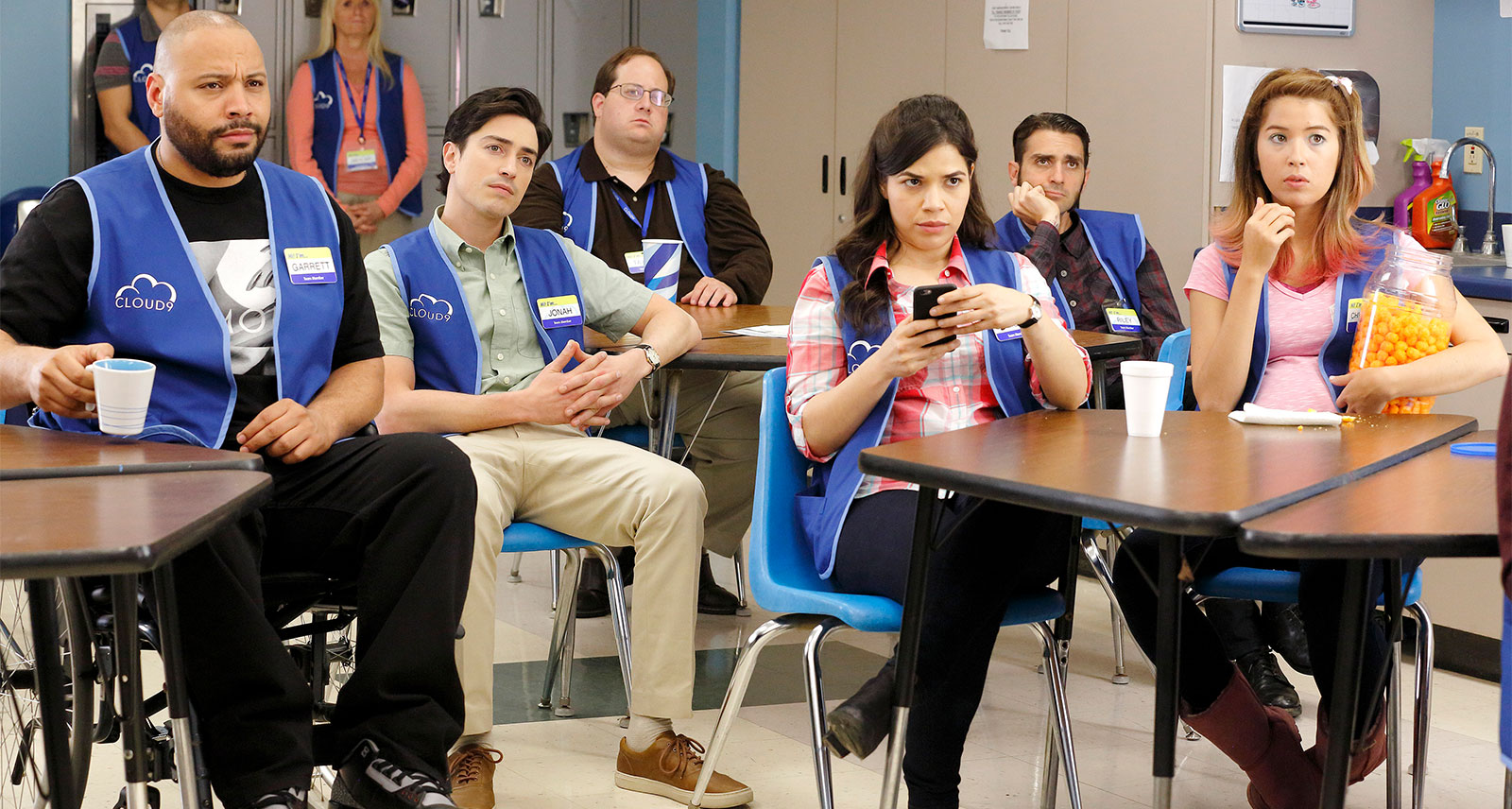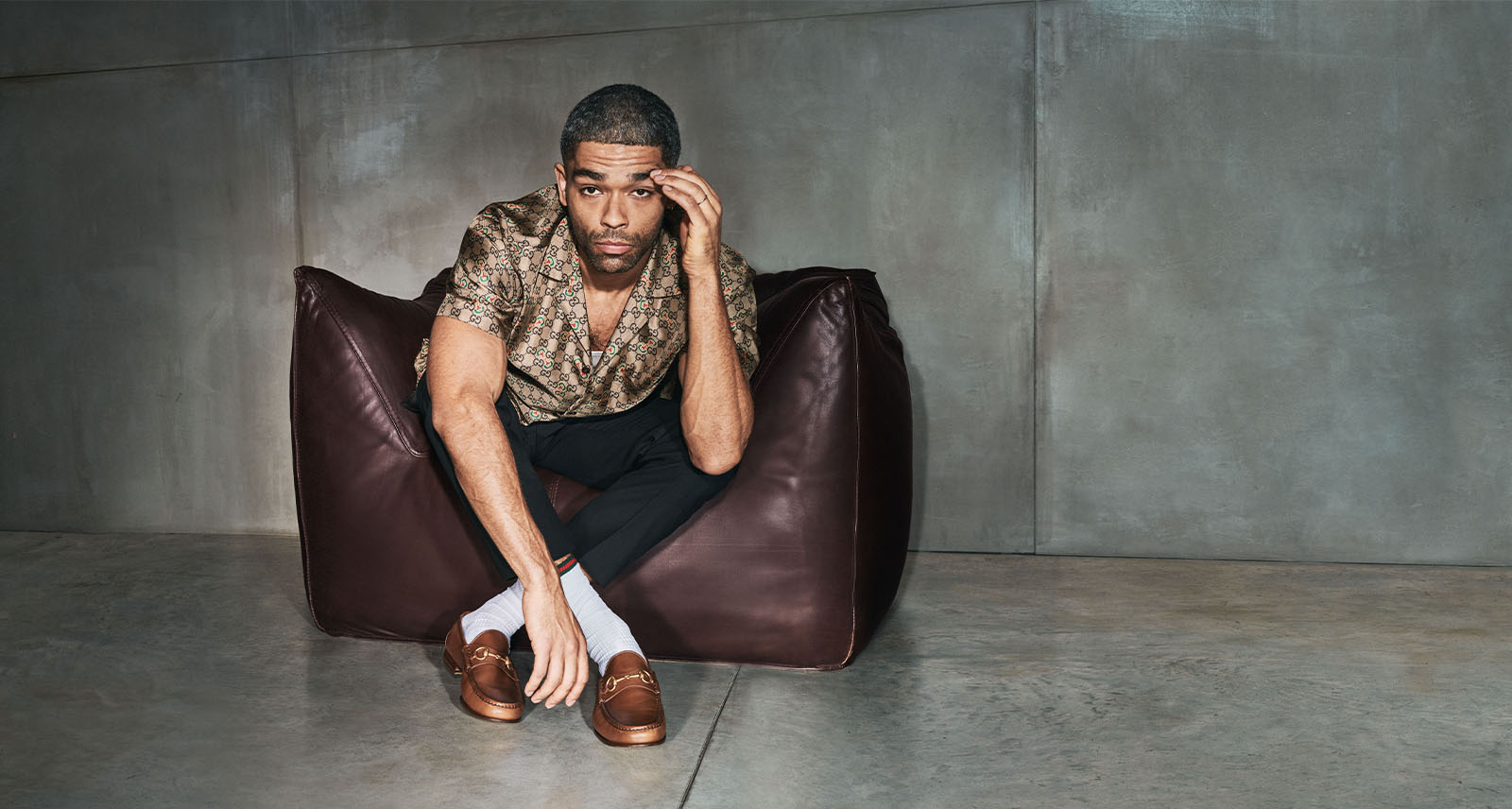What It’s Like to Watch Mass-Market Television in 2017
In the first months of the Trump presidency, with news pouring out hourly that was more frightening than a horror show and more absurd than the most outlandish comedies, people turned on the television looking for a kind of balm — something to numb the pain without adding to the sum total of bellicose stupidity in the world.
My brother-in-law Daniel became addicted to Terrace House, a gentle reality show in which a group of attractive Japanese twentysomethings live in the titular terrace house and, as far as I can tell, flirt very subtly, try their best to succeed at their jobs, and act with a fundamental dignity and kindness that feels shockingly radical. “It’s really calm,” Daniel told me, emerging dazed from a binge in which he’d gone through multiple seasons and begun following individual characters on Instagram. “I mean, almost nothing happens.” One friend rewatched the entirety of Star Trek: The Next Generation, cocoon- ing herself in an alternate universe in which intelligence and diversity are prized attributes. Another blitzed through Project Runway and found himself rooting for the gay Venezuelan immigrant with a fervour that felt bizarrely heightened — the usual reality TV clichés about striving immigrants made newly profound in 2017.
After a world-shaking event like the election of Trump, there is a temptation to retreat to the safety of our cultural tribes. And in an era of peak TV, with more scripted television than ever before, it would be easy to spend the next four years submerged in carefully crafted British miniseries about murders in small towns or intentionally depressing comedies about white people living in the gentrifying neighbourhoods of east LA.
But in a time of intense polarization, when no one can agree on basic facts let alone the relative merits of the latest Netflix show, it felt important to check in with the shows that were at least attempting to speak to a mass audience. If you were looking for solace, why not try the shows explicitly designed to provide distraction and comfort to the largest number of people possible? It felt like a good time to revisit the network sitcom.
***
Twenty years ago, NBC’s Must-See TV dominated the culture, bringing in 25 million viewers — from your racist uncle to the self-proclaimed anarchist at your high-school — who could all quote the Soup Nazi and share an opinion about whether or not Ross and Rachel were on a break. Today, the anchor of NBC’s Thursday night comedy slate is a half-hour comedy set in a big box store that brings in 4 million viewers and is rarely part of the cultural conversation.
Superstore is a half-hour comedy created by Justin Spitzer, a long-time writer on The Office, that tries to do for retail work what Spitzer’s old show did for white collar drudgery. The show stars Ugly Betty’s America Ferrera as Amy, the competent straight-woman to the cast of oddball misfits working at a Walmart-like store. The makeshift work family includes a gay Filipino who finds out he’s an illegal immigrant, a sardonic African-American in a wheelchair, and a jocular bully of an assistant manager played by a white Canadian actress (Lauren Ash). Somehow the likeable performances and specificity of each character’s weirdness prevents the ensemble from feeling like some box-checking exercise in diversity.
As a workplace comedy in which people with very different backgrounds and politics are forced to interact, the show is able to touch on political questions. In one episode from the second season, Jonah, a liberal Business School dropout played by Ben Feldman, refuses to sell a customer a gun, instigating an open carry demonstration in the store by gun-toting protestors. Meanwhile, the evangelical store manager (Kids in the Hall’s Mark McKinney) is appalled to learn that his store sells the morning-after pill and decides to buy out the entire stock in protest. When he realizes how much the pills cost, he spends the rest of the episode loitering around the pharmacy counter, attempting to hawk his supply to customers who look like they might be sexually active.
The show is a broad comedy, but at a time when TV is dominated by zombies, dragons, and inexplicably wealthy families, it might also be one of television’s more realistic portraits of life under late capitalism. In the first season’s finale, the workers attempt to form a union. In the season two opener they are, predictably, squashed by management. The show revels in the absurdity of life under the auspices of soulless corporate overlords while making the very sitcom-y argument that it’s our ability to find laughs and camaraderie with our fellow workers that makes the job redeemable.
Superstore is funny and sharp. It has likeable characters and winning performances. Watching the show in 2017, however, it also feels undeniably anachronistic. Today, television exists within the same polarized world as our politics and news. In one stream, you find breathless paeans to the brilliance of the British import Fleabag and HBO’s The Night Of. In the other, the immensely popular and rarely discussed NCIS and Grey’s Anatomy continue to quietly dominate the ratings while being ignored by the hot-take industry of recappers and podcasters.
Sitcoms like Superstore feel like relics from a time before this polarization. The familiar format of the sitcom — with its joke density, punch-line rhythms, and commercial act breaks — feels like it’s designed to speak to a mass audience that simply no longer exists. Like the network news anchor who speaks in a studiedly neutral, down-the-middle voice as the world burns and we get our news from sources that speak to our specific prejudices and anxieties, the sitcom’s voice-for-everyone approach can sound quaintly irrelevant.
In an episode from Superstore’s second season, the store is the site of a polling location. The bumbling managers inadvertently spoil some ballots. Amy and Jonah flirt their way through a little grassroots organizing. The undocumented immigrant tries to find an “I Voted” sticker in order to prove he’s a US citizen. The episode is funny. It’s about the process of politics without getting explicitly political about the Trump/Clinton race. In the show’s world, conservatives and progressives can disagree but respectively coexist, united by a common decency. The fears of illegal immigrants can be played for laughs. Politics can be discussed with- out everyone in the room exploding into anger and tears. Watching it in the winter of 2017, a few short months after it first aired, the episode feels as fantastical as an episode of Star Trek, as foreign as a Japanese reality show.










